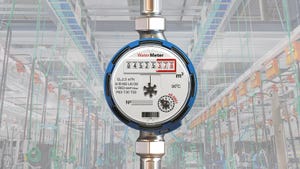
Insight and analysis on the data center space from industry thought leaders.
Top 10 Reasons Modular Data Centers Are Not ContainersTop 10 Reasons Modular Data Centers Are Not Containers
George Slessman, CEO of IO, offers his take on modular data centers and how they are differentiated from containers, pods and mobile data centers.
August 28, 2012

George Slessman is Chief Executive Officer, IO. For the past nine years, Slessman has been an executive in the data center industry, directly overseeing the development of over 100 megawatts of data center capacity. At IO, Slessman is implementing the modular concept for data center management.

George_Slessman_sm
GEORGE SLESSMANIO
Modular data center solutions are transforming the data center market. While containerized, pod and mobile data centers may be quickly and easily deployable, the similarities pretty much end there.
In terms of construction, design, expansion and integration options, there are major differences within modular data center offerings.
A Rose By Any Other Name?
Here are the top ten reasons modular data centers are not containers.
1) Containers Were Designed for Shipping; Modular Data Centers Are Purpose Built – While some initial market entrants supplied modular structures that were nothing more than repurposed ISO (International Standards Organization) shipping containers, a modern, high-quality modular data center is designed from the start to function as an enterprise-grade data center solution. A state-of-the-art structure completely protects both equipment and data, and is managed to a 100 percent uptime service level agreement. Extreme levels of performance can be attained in data centers using a consistent design technique, and capital costs are reduced by standardizing components, construction and the supply chain.
2) Containers Require Retrofit; Modular Data Centers Are Integrated – Some container providers install mechanical equipment on top of the container (often the roof). With this approach, the “modular” solution is really little more than a piece of hardware supplied by the vendor. As the owner, you’ll be expected to handle all of the necessary ownership obligations, such as arranging financing and figuring out depreciation. A true modular data center model places mechanical support infrastructure under the floor, in a true raised floor environment – physically separated from the IT space and away from potential mechanical hazards.
3) Containers Are Not People Friendly; Modular Data Centers Have Full Hot and Cold Aisles – Four-foot wide cold aisles and three-foot wide hot aisles that allow IT staff the room required to work comfortably and provide ample space to move rack mounted gear. These configurations meet OSHA and ADA requirements for work environments.

Mods-3-SIZED
Modular units with wide aisles between them.4) Containers Are Not Software Managed and Enabled; Modular Data Centers Come Equipped with an Integrated Software Platform – Modular data center design has spawned a new era of innovation –Data Center 2.0 – coupling a new class of data center operating systems which provides business intelligence, real-time visibility and control of the data center environment from a single pane of glass with the modular data center hardware.
5) Containers Are Not Equipment Friendly; Modular Data Centers Are Technology Agnostic – While some providers may claim to support hardware from other manufacturers, there is a strong possibility the provider prefers that its customer utilize its own components and those of its key technology partners. Modular data centers are engineered to support mainframes, storage arrays and IT racks from virtually all manufacturers – providing the ultimate in flexibility for both new and legacy systems. With modular technology, the customer is free to choose whatever hardware best suits their IT requirement.
6) Most Containers Are Pre-packaged OEM-specific IT Kits; Modular Data Centers Are Field Upgradeable – Modular data centers utilize a standards-based architecture and replacement parts for key mechanical and electrical systems are readily available. Modular data centers can be upgraded across multiple IT refresh cycles.

Row-of-Mods-Sized
A long view of a row of modular data center units.7) Containers Are Not Tier Certifiable; Modular Data Centers Are Engineered for Concurrent Maintainability – This means that service repairs and maintenance do not impact the operation of the customer’s data center. Enterprises, governments and services providers can serially deliver secure, concurrently maintainable data center infrastructure in weeks with modular data centers.
8) Containers Are Not Thermally Optimized; Modular Data Centers Provide True Energy Efficiency – Most containers are full of IT equipment and rely on additional infrastructure to operate. Modular data centers used advanced cooling technology, implementing evaporative cooling and making use of outside air efficiently. Highly energy efficient with the ability to match cooling to actual IT demand, modular data centers can optimize data center utilization from 25 percent up to 90 percent.
9) Containers Lack Physical Security; Modular Data Centers Are Highly Secure – Modular data centers feature physical access controls, electronic door security, 360 degree digital cameras, galvanized steel shells, rhino-skin hardened tops, hardened controller infrastructure, and customer-specific security and compliance requirements, including Federal FISMA and SCIF.
10) Containers Don’t Scale nor Are Tailored to Meet Enterprise DC Needs; Modular Data Centers Serve Mission Critical Enterprise IT Needs – Modular design permits an optimized delivery approach for matching enterprise IT needs. This ability to right-size infrastructure as IT needs grow enables enterprise alignment with IT and data center strategies.
Industry Perspectives is a content channel at Data Center Knowledge highlighting thought leadership in the data center arena. See our guidelines and submission process for information on participating. View previously published Industry Perspectives in our Knowledge Library.
About the Author
You May Also Like









